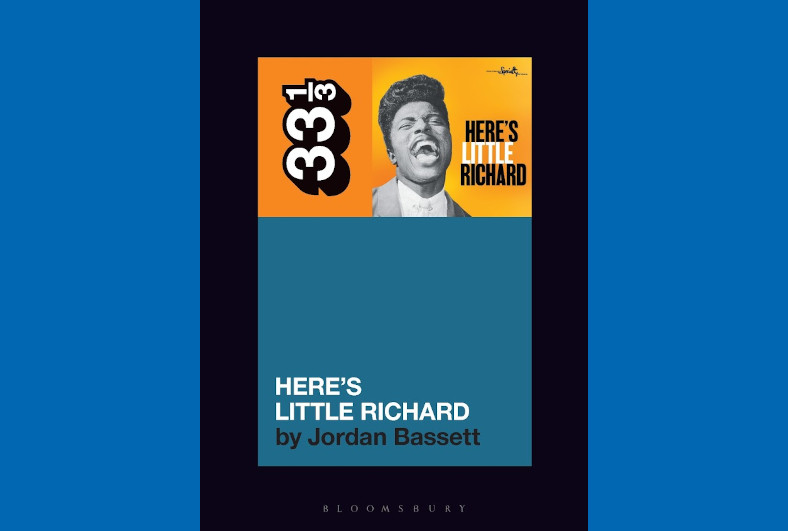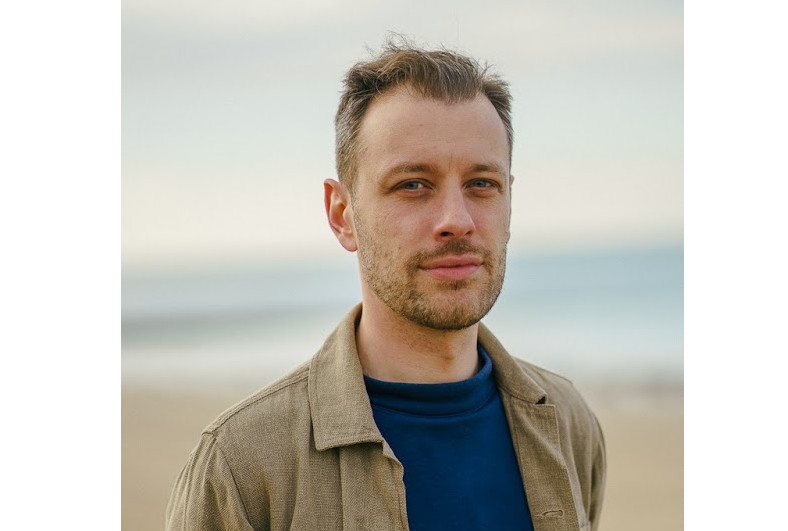A-list interviews, music festivals & gigs and writing about the start of rock’n’roll – An interview with freelance journalist, Jordan Bassett

For some, being able to see their favourite musician live is a once in a lifetime experience. So having the chance to sit down and chat with them would be a dream come true. For a music journalist, it’s all part of the job.
Jordan Bassett has been writing in that area for over a decade now, firstly at NME and now as a freelance journalist. During that time he has interviewed the likes of Liam Gallagher, Elton John, Little Simz and Robbie Williams. We caught up with him to discuss his favourite interviews, his career so far, writing his first book, Here’s Little Richard, and how he has inspired the next generation of drag artists.

You worked for seven years at NME, what are some of your highlights from your time there?
There were so many. It was so transformative and completely changed my life. Workwise some of the best things I did were going on tour with Sink the Pink, the punk drag troupe. They turned me into a drag queen and taught me how to be a drag queen and then I had to get up on stage and perform to thousands of students at Swansea University, which was absolutely terrifying. That became a feature and a short documentary. The documentary didn’t break the internet, but I like to think that everyone who watched it became a drag queen.
Other highlights were covering Glastonbury and helping to organize the NME awards which are just unbelievable privileges. In terms of people I interviewed, I got asked to do Liam Gallagher at about an hour’s notice because someone else had called in sick. When I arrived at the studio, there were two cameras in there and no one had remembered to tell me that it was filmed so I was going to sit for an hour with Liam Gallagher with no preparation, which was an absolutely terrifying prospect. I was shaking but he was amazing and on good form. If Liam Gallagher’s in the right moment then he will usually pretty much interview himself.
Elton John was amazing. That was done over zoom and he was in his palatial house in Windsor. In the background there were all these oil paintings and furnishings dripping with gold behind him and it sort of looked like the novelty zoom backdrop you get but it was actually his place.
Honestly though, the best thing I got out of NME were the people I met there. They were the funniest, coolest, kindest, nicest people you could ever hope to meet. The cheesy thing people always say when they leave NME is that it’s like a family, but that’s totally true.
Who have been your favourite musicians to interview and why?
I mentioned them already, but Liam or Elton. Little Simz was pretty amazing as well. I interviewed her a little bit earlier on in her career. She wasn’t massive like she is now but she had some stardust about her. It’s like why are people still fascinated with the Beatles? It’s because none of them ever said an obvious thing. People like Liam, like Elton, like Little Sims; they’re all completely incapable of saying the obvious things.
When I was a kid, I was obsessed with Robbie Williams. He was my childhood hero. I’ve interviewed him a bunch of times and he’s always an absolute blast. I also recently interviewed Killer Mike who is one of the most eloquent, intelligent, articulate and crucially, emotionally intelligent people I’ve ever met. Everything he says is gold. It was the easiest q&a I’ve ever had to write up because he just speaks in block quotes. Absolutely perfect, crystal clear prose packed with historical and contextual information, and laced with emotional intelligence. He’s definitely one of my favorites.
Can you tell us about your book in a couple of sentences?
It’s the definitive account of Here’s Little Richard, the 1957 debut album from Little Richard; the most influential rock star of all time. It features previously unseen archive material and new interviews with friends and famous fans including Sir Elton John, Dave Grohl, Joan Jett and Nile Rodgers. It’s a story about how Little Richard changed the world in 28 minutes and 30 seconds.
How did you come to write Here’s Little Richard?
I came about writing the book because of a former colleague of mine at NME, Tom Smith. I’d been talking to him about how I wanted to write a book, and he kindly sent me the open submission call for the 33 and a third series, which is Bloomsbury’s series of books about classic albums.
It’s a really great series because it’s totally egalitarian and totally open. You don’t need an agent and you don’t need to know how a book proposal works. Anyone can apply and then they provide you with an outline of the proposal they’re looking for. You knock out a 6000 word pitch, and they give it the thumbs up or thumbs down.
I chose Little Richard because I was amazed it hadn’t been done already. I assumed it would’ve because to me Little Richard is the start of rock’n’roll music. It’s the start of all popular music and you can trace all modern pop music back to him. He did it all in 1955 and that album is his definitive album. It basically sums him up as an artist at that period of his life, which was the height of his fame.
Are you working on another book, or do you have any other projects under way?
I’m working on a proposal for another book, which starts with Little Richard and then will delve further back into music history. I’m hoping it will be a travelogue type piece. I’m lucky to be spending a bit of time going to the US visiting the American south this year and some really important places in the history of rock and roll. Hopefully that will be good material for the next project.
What books are you reading right now, or about to pick up? And what did you read to help inform your Little Richard book?
The book I’m reading at the moment is called Haramacy which is edited by Dhruva Balram and Tara Joshi. It’s described on the front as a selection of essays of voices from the Middle East, South Asia, and the diaspora. It’s a fascinating book and it’s really broadening my perspective already, and I’m only a few essays in so highly recommended.
On the Little Richard front, a really key text for me was The Life and Times of Little Richard. It was written by Charles White. It’s the maddest music biography you’ve ever read. I would say it’s probably the greatest music biography ever written and it’s full of absolutely insane stuff that would probably not get published now. Some of it’s quite troubling but all of it’s very entertaining.
You now work as a freelance journalist, what are some of the pros and cons compared to being a staff journalist on a publication?
The pros and the cons in some ways are the same thing, because I love being self-employed and I love being a freelancer. I love that I can set the structure of my own day. It works for me, personally, because I have a two year old who needs picking up from nursery, so that flexibility is a massive pro.
The cons are that it’s a very solitary existence. I’m lucky I’ve got this network of people that I met at NME. I’m reviewing Queens of the Stone Age at the 02 tonight and I’m not just going to the gig to work, I’m seeing all my mates there. So, I’m very lucky to have that good network. However, even I find it repetitive working from home all the time.
How important do you think magazine journalism is in a now very digital world?
It seems to be swinging back that way, interestingly, with NME back in print. A lot of the places I write for are print titles, and they seem to be bi-monthlies or quarterlies. There’s clearly a desire from people to have a physical product.
What advice would you give to anyone looking to get into music journalism?
My advice would be to just write as much as you can. I got into it by writing for indie papers like The Fly, which aren’t around anymore. You didn’t get paid much and sometimes you didn’t get paid at all, but you got your work published. You’re also getting to meet PRs and going to gigs and you get gently ushered into that world.
I would imagine it’s more difficult now because those kinds of entry points have fallen away. On the other hand, social media is very good for putting aspiring journalists in touch with editors. That’s your playground now, so make your presence known as much as possible. You can stick a link to your published work on Twitter and the commissioning editor at the NME may see it, or you do everything you can to make sure they do see it. At the end of the day, good writing is good writing.
If I’m a PR professional with a story or opportunity for you, what’s the best way to get in contact?
My website is your one stop shop – www.JordanBassett.com.
Want to grab a copy of Here’s Little Richard? Then you can do so here. You can also follow Jordan on X (formerly Twitter).
Any other journalists that would like to chat about their book or about the media in general can get in touch about an interview via news@responsesource.com.